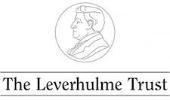 |
Newcastle University Newcastle upon Tyne NE1 7RU United Kingdom. |
 |
What do you think books meant to you then, when you were younger?
Comfort, you know, a nice story – and I’m thinking very much I suppose there about fiction. It’s about comfort, it’s about curiosity, it’s about extending your … and I don’t mean your, it was for me about extending your, my world in your head. It was about things happening that weren’t gonna happen to me. It was about giving my ideas for how I could live my life. I can remember the Secret Seven thing, that was when we lived in Durham, but we left Durham when I was six, and went up to Glasgow, and while I was living in Glasgow, my friends and I had a detective club! I was Sherlock, my friend was Holmes, and her sister was Watson, and we built a detective den in a rhododendron bush near a loch where we lived, and we wrote down car registration numbers [laughs] in case there was a crime later! So that was clearly Secret Seven stuff, you know, and there will be a lot of people of my age who Enid Blyton influenced in that way. That desire to go to boarding school because of Malory Towers and the Chalet School series… So I think that kind of experimental stuff, and the sort of fantasy world that you then want to be yours … Are we still talking about when I was young?
Yes.
Yes, so I think it was about learning. Learning and, I do remember as well, I think something that’s really important to say is my parents never, ever censored any reading. I was reading really risky books under my mother’s nose. I can remember realising that when I was fifteen, or thereabouts, and reading – which would not seem to you or I, but I know it would have seemed to her in terms of her background – when I discovered Simone de Beauvoir, and saying to my mother, you know, I need the third one of her autobiographies, Force of Circumstance, saying to her ‘I’ve got to get that’. And she moved heaven and earth to get the library to get me that book, because I was actually ill at that point, and they never censored it. I can remember wanting to copy my brother, my brother who’s closer to me in age, and he was showing off to me. If he can read Tolstoy, I can read Tolstoy – he’s seven years older than me – and I can remember getting Anna Karenina out of the primary school library, claiming I’d read it [laughs]! Well, I think probably I had read some of it, but what I do remember about Tolstoy at that age – and albeit a translation – was the language, and I loved language and words, just for their own sake. So there’s a kind of, again that goes back to an central thing – there’s a book, which is a central experience, but language for me is central as well, I love language, and hearing it and seeing words, so, you know, it would satisfy that as well. […] The other one was The Mill on the Floss. What struck me was, because Michael is seven and a half years older than I am, and I can remember, and he probably did it for Higher English in Scotland, and I can remember him saying to me – not to me necessarily, I remember hearing him say he had cried over Mill on the Floss at the end. …That really obviously struck me. I thought, what is it about this book? And so that’s about trying to understand. So I did struggle through Mill on the Floss when I was quite young because I wanted to know what had made my brother cry.
And did you have the same response to it?
Absolutely, yes.